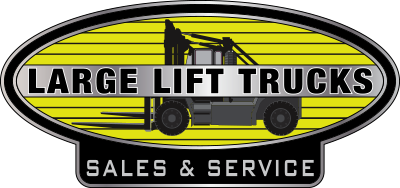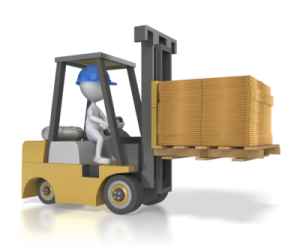Backhoe vs. Excavator. What Are the Key Differences?
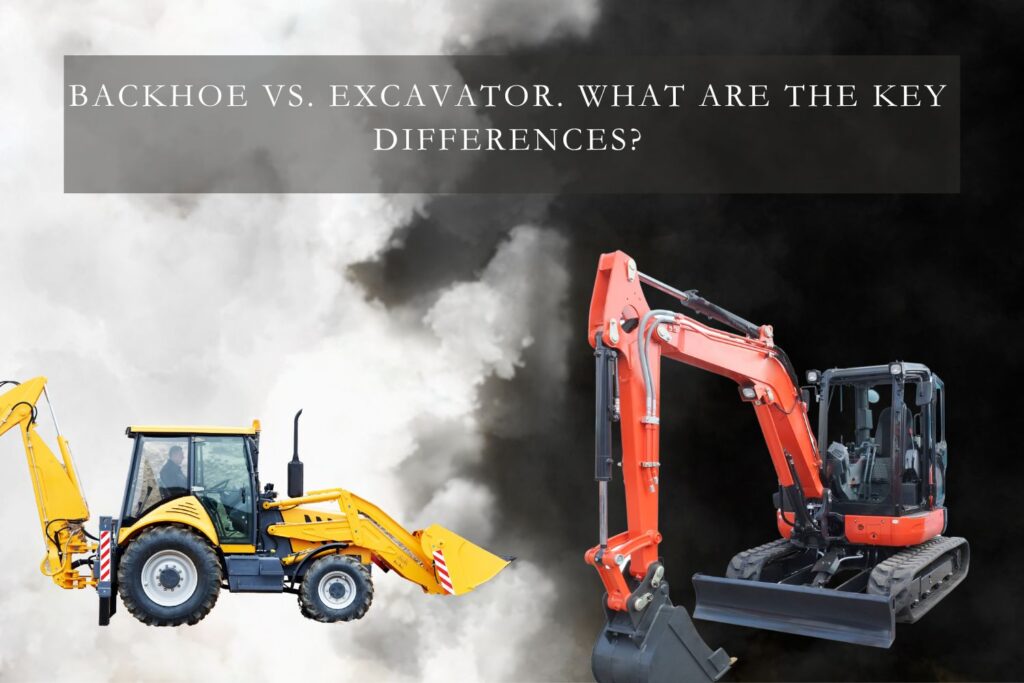
Those big yellow construction machines could all look alike to the layman, but each has a distinct purpose and functionality. The two most confused machines in the construction space are the Backhoe and the Excavator. And why not? They both are huge, dig, and are used at construction sites.
If you are in the construction space or just a vehicle enthusiast, let us walk you through the primary differences between these two vehicles. This will help you understand everything about them and make you an expert in construction vehicles.
What Is a Backhoe?
A backhoe is one of the most popular vehicles in the construction space due to its versatility. Often paired with a backloader on the same vehicle, a backhoe can dig holes and trenches with its backhoe while loading materials and debris into a dump truck using the front loader. The long arms of the backhoe bucket swing inwards toward the machine while the front loader scoops forward. Due to its multifunctionality, it is popular in demolition sites, construction sites, and the landscaping industry.
What Is an Excavator?
An excavator or a digger is a popular construction equipment useful for many tasks. Larger in size than a backhoe, an excavator has a 360-degree rotating house, on a wheeled base, which is essential for complex digging tasks. Its vast size and increased capacity makes it ideal for use in mining, trenching, demolishing, and excavation.
What Are the Major Differences Between Backhoe and Excavator?
| The Differences Between a Backhoe and an Excavator (Infographic Content) | ||
| Feature | Backhoe | Excavator |
| Functionality | Can dig and load with both arms | It can only dig as it has only one arm. |
| Reach | Limited Reach | Greater Reach and is ideal for deeper depths and wider areas. |
| Maneuverability | Large size is a limitation when it comes to tight space operation | Has better movement even on uneven terrain |
| Versatility | It is ideal for trenching, excavating, and loading tasks. | It is limited to digging and requires separate machines for loading |
| Power | Ideal for short trenches | Ideal for deep excavations and heavy lifting. |
What Are the Advantages of Backhoe?
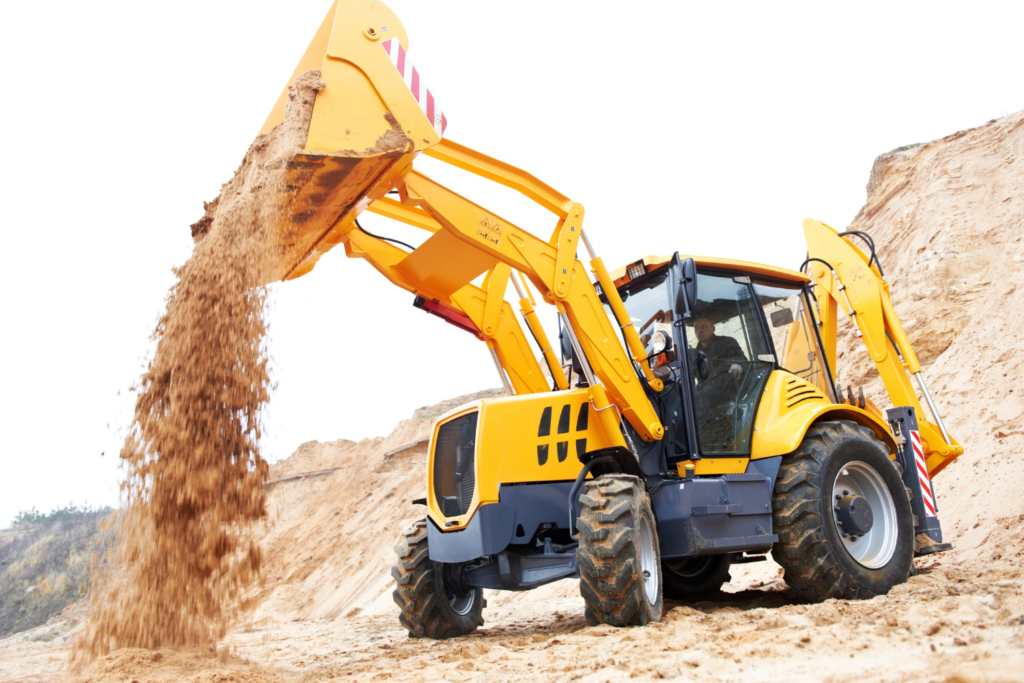
- Versatility: Backhoes are multitaskers. It has a digging arm and a loader arm, which make it easy to finish two tasks with a single machine. Thus making it ideal for smaller projects.
- Cost-Efficiency: Backhoes are cost-effective (renting and buying) when compared to excavators. They can handle multiple jobs which saves costs on labor and equipment rental.
- Compact Size: Backhoes, are ideal for working on compact spaces with limited room for maneuvering.
- Wide Availability: Backhoes are one of the most common construction equipment. This means it is easy to rent or purchase them without a long waiting time.
What Are the Disadvantages of Backhoe?
- Limited Reach: Its shorter digging arm makes it unsuitable for large-scale projects.
- Lower Digging Power: They aren’t as powerful as excavators, in tough terrain.
- Less Maneuverability: Hard to maneuver on uneven grounds.
- Limited Operator Visibility: The design limits the operator’s visibility of the digging area. This affects the precision and safety during operation.
What Are the Advantages of an Excavator?
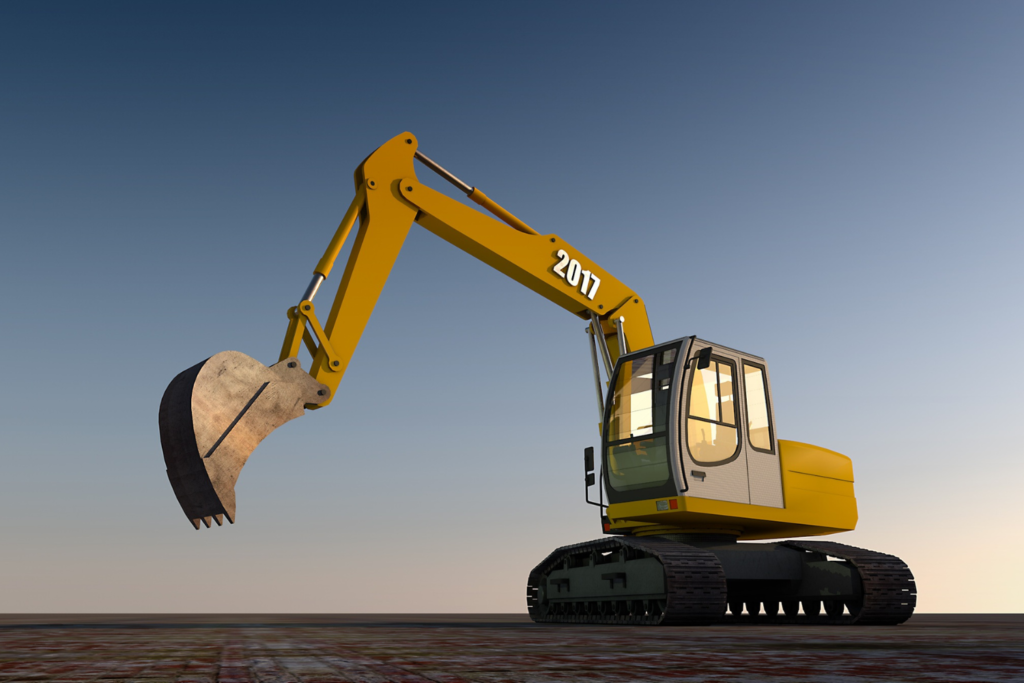
- Power and Digging Capacity: Excavators are great for several jobs
- Excavating large trenches and foundations
- Demolishing structures
- Penetrating hard soil and rock formations
- Lifting and moving heavy objects
- Versatility: You can equip them with various attachments besides buckets. Thus transforming them into machines for
- Breaking and crushing concrete (breaker attachment)
- Grabbing and sorting materials (grapple attachment)
- Shearing and cutting (shear attachment)
- Forestry mulching (mulching head attachment)
- Reach and Flexibility: The rotating house gives it a wider range of motion.
- Stability: Tracked excavators have great stability even on uneven or soft terrain.
What Are the Disadvantages of an Excavator?
- Cost: Excavators are more expensive (renting and buying) than backhoes. This is especially true for larger models.
- Maneuverability: The large size can be a drawback in confined workspaces.
- Complexity: Only skilled and certified personnel can operate it.
- Maintenance: Needs regular maintenance to keep the intricate hydraulic systems and powerful engines working effectively.
Backhoe or an Excavator Which One Should You Choose?
As the article clearly explains, both backhoe and excavators have their advantages and disadvantages and they each have a different purpose to serve on a construction site. So, based on your requirements, budget, and frequency of use, you can pick a backhoe or an excavator. Know more about parts of backhoe or an excavator from here.
Some Common Questions Asked About Backhoes and Excavators
When Should I Use A Backhoe Vs. An Excavator?
A backhoe is ideal for small trenches and confined spaces, but an excavator is ideal for digging deeper trenches.
Can Anyone Use A Backhoe?
Operators need proper training and certifications to operate large construction vehicles including the backhoes and excavators.
Is it safe to use an excavator?
The excavator bucket alone can weigh over 900 pounds, adding to it the boom and dipper arm which move very quickly making it very risky to use. So, never operate these types of machinery unless you are certified to do so.
How many hours will a backhoe last?
A backhoe has a shorter lifetime in comparison to an excavator. But it can last for over 6500 hours.
